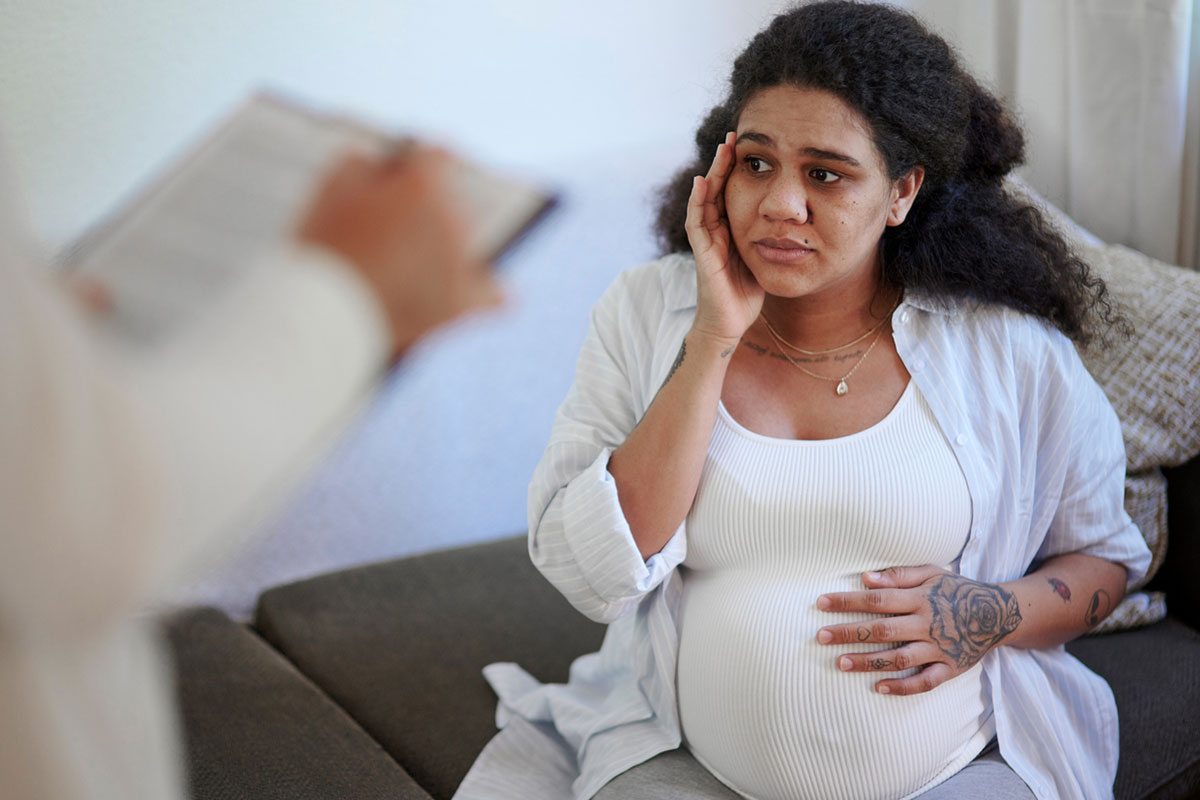Abstract
Background: Efficacious treatments for binge-eating disorder (BED) have been identified, but research is lacking regarding patients’ treatment preferences and their effects on outcomes. We investigated the frequency and correlates of patients’ preferences for 2 distinct BED treatments—cognitive behavioral therapy (CBT) and lisdexamfetamine (LDX)—and whether preferences predicted and/or moderated outcomes.
Method: In a randomized controlled trial (performed March 2019 to September 2023) testing CBT and LDX for DSM-5– defined BED, 102 participants indicated their preference after treatments were described and prior to beginning treatment. Treatment was randomly assigned (not influenced by preferences). Independent assessors, blinded to treatments and to patients’ treatment preferences, performed outcome assessments.
Results: 43.1% (44/102) preferred LDX, 23.5% (24/102) preferred CBT, and 33.3% (34/102) reported no preference. Treatment preference was not significantly associated with any sociodemographic or baseline clinical characteristics. Logistic regression models (for binge-eating remission and attaining ≥5% weight loss) and mixed models (for changes in binge-eating frequency, weight, eating disorder psychopathology, and depression) testing main effects of treatments, main effects of treatment preferences, and their interaction effects converged. No significant interaction effects between treatment and treatment preferences were observed.
Conclusions: In this study comparing CBT and LDX treatments for BED in patients with obesity, participants’ preferences for treatments were not associated with their sociodemographic or clinical characteristics and did not moderate treatment outcomes of these 2 effective interventions. Implications for clinical practice and future research are discussed.
Trial Registration: ClinicalTrials.gov identifier: NCT03924193.
J Clin Psychiatry 2025;86(2):24m15552
Author affiliations are listed at the end of this article.
Members Only Content
This full article is available exclusively to Professional tier members. Subscribe now to unlock the HTML version and gain unlimited access to our entire library plus all PDFs. If you're already a subscriber, please log in below to continue reading.
References (31)

- Udo T, Grilo CM. Prevalence and correlates of DSM-5-defined eating disorders in a nationally representative sample of US adults. Biol Psychiatry. 2018;84(5):345–354. PubMed CrossRef
- Udo T, Grilo CM. Psychiatric and medical correlates of DSM-5 eating disorders in a nationally representative sample of adults in the United States. Int J Eat Disord. 2019;52(1):42–50. PubMed CrossRef
- Grilo CM, Juarascio A. Binge-eating disorder interventions: review, current status, and implications. Curr Obes Rep. 2023;12(3):406–416. PubMed CrossRef
- Grilo CM, Masheb RM, Wilson GT. Efficacy of cognitive behavioral therapy and fluoxetine for the treatment of binge eating disorder: a randomized double-blind placebo-controlled comparison. Biol Psychiatry. 2005;57(3):301–309. PubMed CrossRef
- Grilo CM, Masheb RM, Wilson GT, et al. Cognitive–behavioral therapy, behavioral weight loss, and sequential treatment for obese patients with binge-eating disorder: a randomized controlled trial. J Consult Clin Psychol. 2011;79(5):675–685. PubMed CrossRef
- Wilson GT, Wilfley DE, Agras WS, et al. Psychological treatments of binge eating disorder. Arch Gen Psychiatry. 2010;67(1):94–101. PubMed CrossRef
- McElroy SL, Hudson J, Ferreira-Cornwell MC, et al. Lisdexamfetamine dimesylate for adults with moderate to severe binge eating disorder: results of two pivotal phase 3 randomized controlled trials. Neuropsychopharmacology. 2016;41(5):1251–1260. PubMed CrossRef
- McElroy SL, Hudson JI, Mitchell JE, et al. Efficacy and safety of lisdexamfetamine for treatment of adults with moderate to severe binge eating disorder: a randomized clinical trial. JAMA Psychiatry. 2015;72(3):235–246. PubMed CrossRef
- Vall E, Wade TD. Predictors of treatment outcome in individuals with eating disorders: a systematic review and meta-analysis. Int J Eat Disord. 2015;48(7):946–971. PubMed CrossRef
- McHugh RK, Whitton SW, Peckham AD, et al. Patient preference for psychological vs pharmacologic treatment of psychiatric disorders: a meta-analytic review. J Clin Psychiatry. 2013;74(6):595–602. PubMed CrossRef
- Brody ML, Masheb RM, Grilo CM. Treatment preferences of patients with binge eating disorder. Int J Eat Disord. 2005;37(4):352–356. PubMed CrossRef
- Grilo CM, Ivezaj V, Tek C, et al. Cognitive behavioral therapy and lisdexamfetamine, alone and combined, for binge-eating disorder with obesity: a randomized controlled trial. Am J Psychiatry. 2025;182(2):209–218. PubMed CrossRef
- American Psychiatric Association. Diagnostic and Statistical Manual of Mental Disorders. Fifth Edition (DSM-5). American Psychiatric Association; 2013.
- Fairburn CG, Cooper Z, O’Connor M. The Eating Disorder Examination (16.0D). In: Fairburn CG, editor. Cognitive Behavior Therapy and Eating Disorders. Guilford Press; 2008.
- Grilo CM, Masheb RM, Lozano-Blanco C, et al. Reliability of the Eating Disorder Examination in patients with binge eating disorder. Int J Eat Disord. 2004;35(1):80–85. PubMed CrossRef
- Beck AT, Steer RA, Brown G. Beck Depression Inventory-II (BDI-II). Database Record APA PsycTests; 1996.
- Beck AT, Steer R, Garbin M. Psychometric properties of the Beck Depression Inventory: Twenty-five years of evaluation. Clin Psychol Rev. 1988;8(1):77–100.
- Sheehan DV, Lecrubier Y, Sheehan KH, et al. The Mini-International Neuropsychiatric Interview (MINI): the development and validation of a structured diagnostic psychiatric interview for DSM-IV and ICD-10. J Clin Psychiatry. 1998;59(Suppl 20):22–57. PubMed
- Fairburn CG, Marcus MD, Wilson GT. Cognitive-behavioral therapy for binge eating and bulimia nervosa: a comprehensive treatment manual. In: Fairburn CG, Wilson GT, editors. Binge Eating: Nature, Assessment, and Treatment. Guilford Press; 1993.
- Cohen ZD, DeRubeis RJ. Treatment selection in depression. Annu Rev Clin Psychol. 2018;14:209–236. PubMed CrossRef
- Kocsis JH, Leon AC, Markowitz JC. Patient preference as a moderator of outcome for chronic forms of major depressive disorder treated with nefazodone, cognitive behavioral analysis system of psychotherapy, or their combination. J Clin Psychiatry. 2009;70(3):354–361. PubMed CrossRef
- Mergl R, Henkel V, Allgaier A-K, et al. Are treatment preferences relevant in response to serotonergic antidepressants and cognitive-behavioral therapy in depressed primary care patients? Results from a randomized controlled trial including a patients’ choice arm. Psychother Psychosom. 2011;80(1):39–47. PubMed CrossRef
- Dunlop BW, Kelley ME, Mletzko TC, et al. Depression beliefs, treatment preference, and outcomes in a randomized trial for major depressive disorder. J Psychiatr Res. 2012;46(3):375–381. PubMed CrossRef
- Dunlop BW, Kelley ME, Aponte-Rivera V, et al. Effects of patient preferences on outcomes in the predictors of remission in depression to individual and combined treatments (PReDICT) study. Am J Psychiatry. 2017;174(6):546–556. PubMed CrossRef
- Grilo CM. Treatment of eating disorders: current status, challenges, and future directions. Annu Rev Clin Psychol. 2024;20(1):97–123. PubMed CrossRef
- Coffino JA, Udo T, Grilo CM. Rates of help-seeking in U.S. adults with lifetime DSM-5 eating disorders: prevalence across diagnoses and sex and ethnic/racial differences. Mayo Clin Proc. 2019;94(8):1415–1426. PubMed CrossRef
- Lydecker JA, Gueorguieva R, Masheb RM, et al. Examining sex as a predictor and moderator of treatment outcomes for binge-eating disorder: analysis of aggregated randomized controlled trials. Int J Eat Disord. 2020;53(1):20–30. PubMed CrossRef
- Lydecker JA, Gueorguieva R, Masheb RM, et al. Examining race as a predictor and moderator of treatment outcomes for binge-eating disorder: analysis of aggregated randomized controlled trials. J Consult Clin Psychol. 2019;87(6):530–540. PubMed CrossRef
- Thompson-Brenner H, Franko DL, Thompson DR, et al. Race/ethnicity, education, and treatment parameters as moderators and predictors of outcome in binge eating disorder. J Consult Clin Psychol. 2013;81(4):710–721. PubMed CrossRef
- Bergkvist L. Appropriate use of single-item measures is here to stay. Mark Lett. 2015;26:245–255. CrossRef
- Allen MS, Iliescu D, Greiff S. Single item measures in psychological science. Eur J Psychol Assess. 2022;38:1–5. CrossRef





